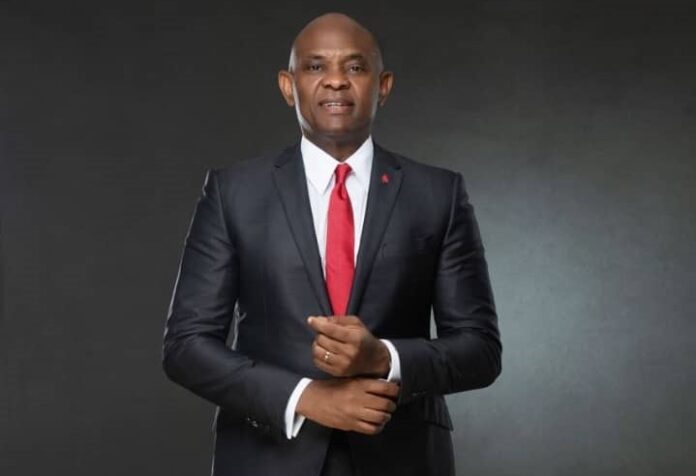Prioritise Security, Elumelu Tells Tinubu
Chairman of United Bank for Africa, UBA, Mr. Tony Elumelu, has asked President Bola Tinubu to prioritise security in order to tackle the current food scarcity and attract investment into the country.
His words: “To protect our people, feed them, attract investment, and foster trade, we must prioritise security.
“Insecurity has become a national crisis, which must be dealt with decisively and urgently. Our people deserve to go to their farms unhindered, live peacefully and conduct their lives and businesses without fear; it is the fundamental right of every citizen.”
Banking
Speaking on the banking sector, Elumelu described it as “a cornerstone of Nigeria’s economy”, adding that its transformation over the last few decades was one of the nation’s success stories.
“The sector employs millions, provides crucial financial support to countless businesses, and generates income for millions of shareholders.
”However, the sector faces challenges that impede its growth and innovation, including regulatory and high compliance costs.
“To overcome these challenges, stakeholders—including government agencies, regulatory bodies, and banking institutions—must engage in constructive dialogue to foster a collaborative environment.
“By working together, we can build a more resilient banking sector that drives economic growth and supports the aspirations of Nigerians,” Elumelu said.
In his message to the conference , President Bola Tinubu urged the business and banking community to prioritize capacity building, talent development, and youth empowerment as drivers of the nation’s economic growth.
The President, who was represented by Vice President Kashim Shettima, said his administration placed priority on growing the economy.
According to him, the federal government is training three million Nigerian youths in digital technology and essential skills, with plans to deploy them to innovation firms across the country.
Tinubu said: “We are committed to achieving a 70 per cent digital literacy level by 2027 through collaboration and innovation.
“We must focus on capacity building, talent development, and youth empowerment. These are the hands of our youth, and we must equip them with the skills, knowledge, and opportunities needed to drive our nation forward.”
He emphasized that the initiatives would be critical to Nigeria’s progress, adding that “the journey ahead will require determination, but I am confident that with the support of the Nigerian banking and finance sector, we can accelerate economic growth and ensure prosperity for all Nigerians.”
Policies to reduce inflation
The President said his policies would restore confidence in the economy and that measures being taken would reduce inflation, stabilize the foreign exchange market and improve fiscal management.
“Our focus is on strengthening infrastructure development. “We are reducing transportation costs and improving market access by investing in infrastructure that supports economic growth,” he said.
He further stressed the importance of financial inclusion, noting that formal financial inclusion in Nigeria grew from 56% in 2020 to 64% in 2023.
The President added: “This progress has been driven by increased bank access and advancements in non-bank areas, such as mobile money services.”
How we ‘ll reduce transportation costs—Edun
Speaking on fiscal policies, Minister of Finance and Coordinating Minister of the Economy, Mr. Wale Edun, assured that government would alleviate transportation costs by enhancing the supply of premium motor spirit, PMS, otherwise known as petrol, by 25 million litres, starting in September, through the Dangote refinery.
He added that procurement of biofuel buses and compressed natural gas, CNG, conversion kits would receive greater attention.
The minister acknowledged that food inflation remained a significant challenge, noting that “the consumer price index eased from 34 per cent in June to 33 per cent in July, but food prices continue to rise sharply.”
The governor of the Central Bank of Nigeria, CBN, Mr. Olayemi Cardoso, in a message to the conference, described bankers as “not just critical stakeholders but also more of a track driver of inclusive growth.”
Represented by the Director of Risk Management, Dr. Braise Ijebor, the governor said bankers’ decisions and actions had significant consequences on the lives of millions of Nigerians and, indeed, Africans.





